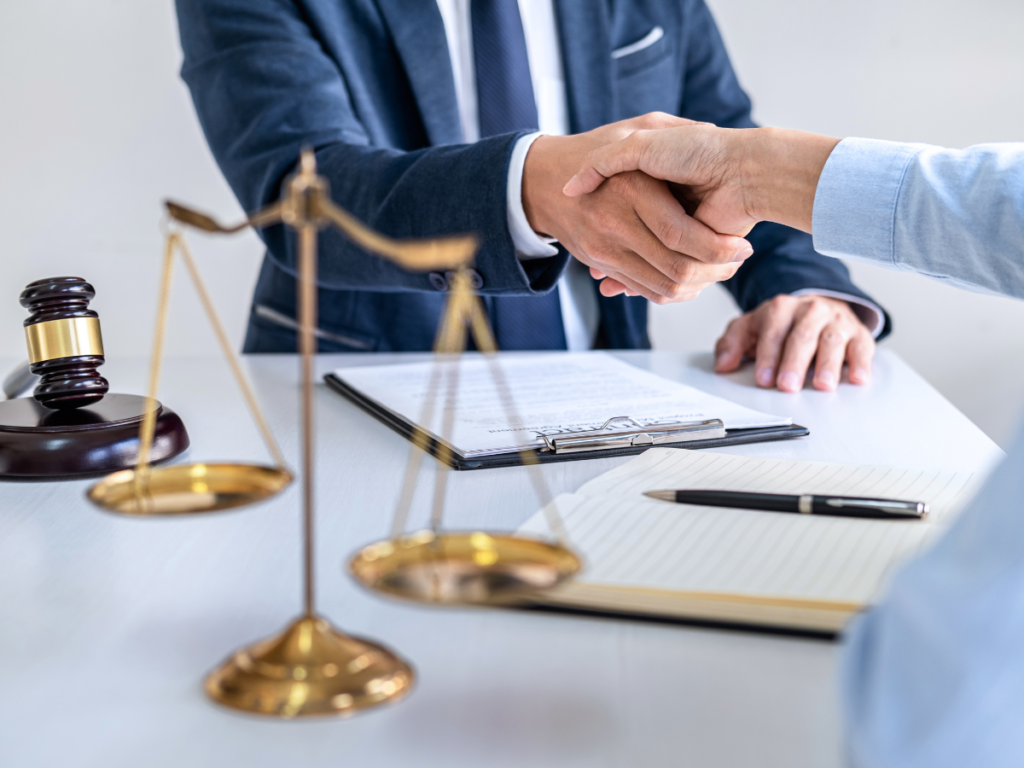Criminal Defense Timeline: How Long Will My Case Take?


The legal system is intricate, with its complexity extended to the differing timelines of criminal defense cases. Accused individuals are entitled to a speedy trial. But what does that really mean? The truth is that the length of a trial can vary wildly, but being prepared for the process as a whole could be one of your greatest weapons of defense in the courtroom.
Criminal Charges Are Filed
After the investigation of the alleged crime, the detective presents the case to a prosecutor who decides on whether or not to file charges. The detective provides the details behind the requested charges, and then either a Deputy District Attorney or City Attorney decides if the proceedings should result in a formal criminal charge. This sometimes happens before the first court appearance, but it could take longer.
During the accused’s first court appearance, they might find out no charges have been filed and get proof of appearance. But, a prosecutor has until the expiration of the statute of limitations to file charges. An indictment means a grand jury has charged you, not a prosecutor.
Your First Court Appearances
Once a case is filed, the first official court appearance, or arraignment, happens. This is when the accused pleads either guilty or not guilty and gets initial evidence, which usually includes police reports and witness statements.
During the arraignment, bail can be adjusted. Judges and prosecutors often use the bail schedule to decide on bail requests. If you have been charged with a minor or non-violent misdemeanor, you might be released without paying bail. For some cases, such as domestic violence, the court may issue an order that stops the accused from contacting the victim while the case continues.
Most defendants charged with a misdemeanor who have already hired private lawyers do not need to attend the arraignment. But those charged with felonies must be present.
Is an Early Resolution Possible?
After the arraignment, there is usually a status conference. The early disposition conference is an opportunity for both parties to come to an agreement without going to trial.
A key difference between felony and misdemeanor cases is that in felony cases, the accused can ask for a preliminary hearing. This is a proceeding where the government must convince the court that there is enough evidence to warrant a trial before a jury. Defendants accused of a misdemeanor do not have this luxury. They either agree to settle or proceed directly to a jury trial.
These early conferences can occur multiple times throughout a case. During these engagements, remaining discovery issues can be sorted out, and parties negotiate to see if they can avoid contested litigation.
Should the defense bring forth a motion requiring a hearing, the court may decide to hold the hearing on one of the set dates. However, in felony trials, motions to suppress are usually heard alongside the preliminary hearing.
What Is a Preliminary Hearing?
A preliminary hearing is a hearing to see if there is enough cause to put the accused on trial. It shares several features with a trial, with both parties giving testimony and legal arguments. The difference is that the standard of proof is much lower. The government tries to show that there is enough reason to put the accused before a jury.
This is significantly easier than having to prove beyond a reasonable doubt, which is required for a conviction at trial. These hearings give the accused an opportunity to challenge the government’s case theory and cross-question their witnesses. These hearings might push the government to suggest settling by revealing the case’s strengths and weaknesses to both sides. Though, preliminary hearings only happen in felony cases, not for misdemeanors.
The Trial and Potential Punishment
If both parties cannot agree on a settlement, then the case goes to a jury trial, as guaranteed by the U.S. Constitution. A jury of citizens reviews the evidence and decides if the accused is guilty beyond a reasonable doubt. If they are found guilty, they are convicted. If not, they are acquitted. Once found guilty or after a guilty plea, the accused is sentenced.
In plea agreements, the accused is aware of the terms beforehand. The judge approves the agreement the parties reach. But after a jury verdict, the judge decides the punishment.
Most defendants facing non-violent misdemeanors get put on probation rather than going to jail upon being convicted. On the other hand, the court often agrees to impose formal probation for non-violent felony offenders or for those with clean records.
The judge picks a punishment term from a low, medium, and high term for each conviction, per the Penal Code. For example, a crime might have a “2-3-5” punishment, showing that the judge selects a two-, three-, or five-year prison sentence after reviewing the case’s factors. Misdemeanor sentences are capped at one year in county jail, while felonies could require at least 16 months in prison.
After the Conviction
Defendants given probation, either via a misdemeanor or felony guilty verdict, often need to meet certain obligations, like community service, counseling, anger management programs, and paying fines. Courts set progress report dates to ensure the defendant is complying with these obligations.
While many defendants represent themselves on these occasions, some prefer to hire attorneys, particularly when they have not complied with what was expected of them. When a defendant does not stick to the terms and conditions of their probation, the judge might decide there has been a violation and add more penalties. Defendants accused of probation violation have a right to a formal hearing. Here, the government needs to prove that the defendant violated the terms.
How an Experienced San Diego Defense Attorney Can Help You
As you can see, the criminal investigation and court processes are highly complex, and no two cases are alike. From reporting a crime to the end of a case, the entire legal process can take anywhere from a month or two to years. Having a skilled San Diego defense lawyer with you every step of the way can help make sure that the outcome of your case is as favorable as possible.
With a commendable career that goes beyond three decades, attorney James N. Dicks of jD Law Criminal Defense Attorneys carries a fantastic legal track record. He has the distinction of being a Certified Criminal Law Specialist, an acknowledgment granted by the California Board of Legal Specialization. His unique insight, gained from his experience as an investigator with the Los Angeles Police Department, sets him apart, too.
Have You Been Accused of a Crime in San Diego?
If you are facing criminal charges in or near San Diego, do not hesitate to reach out to jD Law Criminal Defense Attorneys. We are here to explore your legal options, protect your rights, and fight for your freedom. For a free consultation, call (760) 630-2000 today.
Don’t Waste Any Time!
Call us today for a FREE Consultation
(760) 630-2000


- Criminal Law Expert - Led by a Board Certified Criminal Law Specialist. Read More
- 100s of Cases Tried - Since 1990, James Dicks has represented hundreds of clients. Read Bio
- Client Approved - Read our online testimonials from satisfied jD LAW Clients. Yelp Reviews
- May 30, 2024
When Juveniles Are Accused of Violent Crimes - May 20, 2024
What Should You Do During a Traffic Stop? - May 10, 2024
The Legal Concept of ‘Intent’ in Theft Crime …
 RSS
RSS




